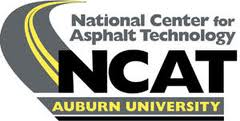Asphalt Research Consortium
Description
The Asphalt Research Consortium is a group of five organizations bringing an extraordinary depth and range of asphalt experience to bear on significant needs of the asphalt community. Under a cooperative agreement with the Federal Highway Administration (FHWA), they are initiating a new program in 2007 to:
-
Assess existing technologies for fast-tracking to commercialization
-
Generate a greater mechanistic understanding of fatigue and moisture damage
-
Develop technologies, standards, and procedures to improve the performance and predictability of asphalt paving materials
-
Validate new technologies in the field so they can be confidently adopted by industry and departments of transportation.
It is expected that this unprecedented team effort will accelerate progress in addressing key asphalt pavement performance issues.
Strategic Plan
Mission: The mission of this Consortium is to, over the next five years, build upon prior asphalt and modified asphalt research as well as prior asphalt pavement research in order to substantially improve the understanding of the mechanisms of asphalt pavement failure modes; and employ this improved understanding of pavement failure modes to devise user-friendly, validated test methods applicable to all materials (including engineered materials) and construction methods to predict pavement performance. The improved understanding, which will lead to improved and unified models as well as refined test methods, will be communicated effectively to all stakeholders through publications, web sites, Expert Task Group reviews, symposia and workshops.
Benefits to stakeholders: Accurate characterization and proper matching of pavement materials with pavements which are well designed for the use and environment within which they are to fuction reduces the risk of early pavement failure. These stakeholder benefits will improve traffic safety and reduce life-cycle cost.
The overall deliverables that will benefit stakeholders may be divided into fundamental and applied categories. The fundamental deliverables are a clearer understanding of asphalt failure modes together with validated models that predict pavement performance. The applied deliverables are fundamentally sound, validated, user-friendly test methods that differentiate among pavement design methods, materials, and construction methods so as to minimize the risk of early pavement failure. The research hypotheses, research objectives and deliverables are more specifically described in the "Asphalt Research Consortium Strategic Plan".
Participants
Western Research Institute (WRI)
Texas A&M University (TAMU)
University of Wisconsin-Madison (UWM)
University of Nevada-Reno (UNR)
Advanced Asphalt Technologies (AAT)
Under contract to FHWA and in coordination with the Binder Expert Task Group, the Mixture and Construction Expert Task Group, and the Models Expert Task Group.
Program Area Leaders
- Consortium Program Manager, Dr. A. Troy Pauli, WRI
- Moisture Damage, Fred Turner, WRI
- Fatigue Damage, Drs. Dallas Little, Robert Lytton & Eyad Masad, TAMU
- Engineered Paving Materials, Dr. Hussain Bahia, UWM
- Vehicle-Pavement Interaction, Dr. Peter Sebaaly, UNR
- R&D Validation, Michael Farrar, WRI
- Technology Development and Fast-Tracking, Dr. Ramon Bonaquist, AAT
- Technology Transfer, Dr. Peter Sebaaly, UNR
Length of Contract: Five years, though many research activities will be completed within shorter periods.

